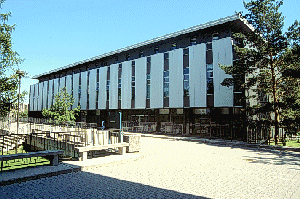PDF
Huguenot prophetism, clerical authority, and the disenchantment of the world, 1685-1710 Item Info
- Title:
- Huguenot prophetism, clerical authority, and the disenchantment of the world, 1685-1710
- Creator:
- Charbonneau, Jason
- Date Created:
- 2012
- Degree Awarded:
- Master of Arts
- Subjects:
- Religion Huguenots France 17th Century
- Geographical Focus:
- France Europe
- Supporting Materials:
- n/a
- Description:
- The sudden emergence of prophetism in the Huguenot community following the revocation of the Edict of Nantes in 1685 spurred a reassessment of the role of inspired prophecy in the administration of the French Reformed Church. Insofar as they claimed direct inspiration from God, the Huguenot prophets — many of whom were as young as 8 years old — superseded the authority of the regular clergy and threatened to break the Church's monopoly on the interpretation of divine will. This prompted a reaction from Calvinist clerics who sought to delegitimize the act of prophetism in the modern era by opposing it to the principles of rationalist thought and mechanistic philosophy. This thesis argues that the polemical exchanges between inspired prophets and regular churchmen acted as catalysts for the adoption of Enlightenment thought in the Calvinist community, contributing to the disenchantment of Huguenot religious culture in the eighteenth century.
Source
- Preferred Citation:
- Charbonneau, Jason. Huguenot prophetism, clerical authority, and the disenchantment of the world, 1685-1710. 2012. Carleton University, Master of Arts.
- Reference Link:
- https://cuhistory.github.io/grads/items/hist_102.html
Rights
- Rights:
- Copyright the author, all rights reserved, unless otherwise indicated.

